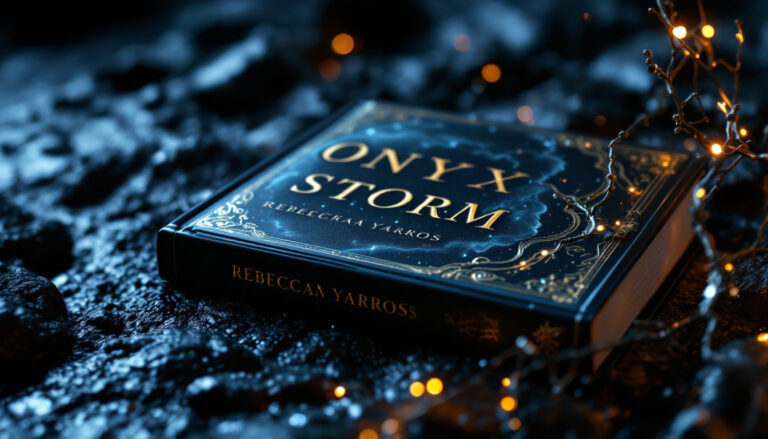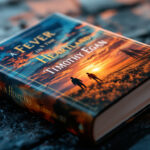Book Lovers by Emily Henry – A Romance with Depth and Humor
Emily Henry’s Book Lovers is more than just your typical romance novel—it’s a witty, heartfelt story that explores family, ambition, and personal growth. Following Nora, a driven literary agent, and Charlie, a brooding editor, their chemistry sparks in a small-town setting packed with charm and surprises. At its core, the book balances humor with deeper themes like sisterhood, love, and the pressure of high expectations. Whether you’re a romance fan or a skeptic, this book offers something refreshingly real that’s hard to put down.
Overview of ‘Book Lovers’
Emily Henry’s Book Lovers isn’t just a romance novel—it’s a love letter to book enthusiasts, sisters, and even small-town clichés. With vibrant characters, heartfelt moments, and self-aware humor, the book offers a fresh twist on familiar tropes. Whether you’re a hardcore romantic or a skeptic, this story invites readers to both laugh and reflect.
Plot Summary
At the heart of Book Lovers is Nora Stephens, a fiercely determined literary agent living in New York City. She’s the archetype of a career-focused woman—but flips the script often found in romantic tales where such characters lose everything for love. Nora’s world takes an unexpected turn when her sister, Libby, convinces her to take a break in Sunshine Falls, a quaint small town brimming with charm.
Their stay becomes a journey of fulfilling Libby’s carefully designed checklist of fun activities, but there’s a twist—Nora keeps bumping into Charlie Lastra. Charlie is a brooding book editor who knows how to push Nora’s buttons. The two share a complicated history of professional sparks (and spats), but their connection runs deeper than either expects. Through diary revelations, late-night conversations, and an undeniable chemistry, their stories begin to intertwine.
While Sunshine Falls serves as the book’s backdrop, the real magic happens in the interactions between Nora, Charlie, and the larger-than-life supporting cast. The narrative pulls readers into a tale that seamlessly blends Nora’s personal growth with humorous romantic tension. For a more detailed look into the storyline, consider this breakdown of the book’s key moments.
Key Themes and Motifs
At its core, Book Lovers is about more than romance. It’s a story layered with themes that echo beyond the pages, resonating with anyone who’s navigated family pressures, career challenges, or shifting self-perceptions. Here’s a look at the main themes:
- Romance Reconsidered: The book subverts many traditional romance tropes. Instead of casting Nora as the small-town underdog who transforms to win a man, she remains unapologetically herself: ambitious, bold, and complex. Charlie, too, avoids the idealized “hero” mold, making their connection feel real and relatable. Exploring romance archetypes is a key aspect of this novel.
- Sibling Relationships: The bond between Nora and Libby sits at the heart of the story. As sisters with contrasting personalities, their relationship offers moments of tension, laughter, and raw vulnerability. Their shared dynamic captures the essence of unconditional love while highlighting the sacrifices siblings often make for each other.
- Self-Discovery and Growth: Much of the narrative revolves around Nora finding herself outside of her professional identity. The small-town setting and her interactions with Libby and Charlie force her to confront what she truly wants in life. It’s not about abandoning ambition but reshaping it to include personal fulfillment.
- Honoring Life’s Messiness: Book Lovers takes a meta approach by cheekily nodding to classic romance clichés while humanizing its characters. Life isn’t picture-perfect, and the book embraces this, proving that even in chaos, beauty persists. As one reviewer illustrates, this is a story of healing and self-love woven into romance.
Packed with humor and heart, Book Lovers invites its readers to see themselves in its characters and themes, offering moments that feel deeply personal.
Character Analysis
In Book Lovers, Emily Henry constructs characters who feel real, flawed, and layered— qualities that make them unforgettable. At the core of the novel are Nora Stephens and Charlie Lastra, two characters whose journeys are as much about self-discovery as they are about romance. Let’s take a closer look at what makes them tick.
Nora Stephens: The Career-Driven Protagonist
Nora Stephens is the kind of protagonist who doesn’t fit the mold of the typical small-town romance heroine. She is a sharp, ambitious literary agent who thrives in the fast-paced world of New York publishing. Yet, beneath her polished exterior lies a deep sense of responsibility, especially toward her sister, Libby. Much of Nora’s storyline revolves around her attempts to balance her high-demand career with her personal life—a struggle many readers may relate to.
Her journey in Sunshine Falls pushes her to reevaluate what truly matters. Initially resistant to the town’s slow pace and simple joys, Nora gradually begins to uncover parts of herself that have been suppressed by her relentless drive. Her growth isn’t about abandoning her ambition. Instead, it’s about realizing that success doesn’t have to come at the cost of personal happiness. As noted in this character-focused review, Nora’s complexity makes her a character that feels refreshingly human.
Nora’s relationship with Libby also plays a significant role in her evolution. She strives to be the dependable older sister, suppressing her own needs in the process. Watching her learn to let go, even just a little, provides some of the book’s most touching moments. It’s clear that Nora’s steadfast commitment to family, combined with her self-awareness, sets her apart as a memorable and inspiring character.
Charlie Lastra: The Romantic Lead
Charlie Lastra is a striking contrast to the stereotypical male leads found in romance novels. Initially coming across as sharp-tongued and somewhat aloof, his deeper qualities gradually surface. Charlie is not just the love interest in Nora’s story; he’s a pivotal force in her personal and professional growth. His dry wit and intellectual charm make him immediately compelling, but it’s his vulnerability that truly endears him to readers. According to one write-up, his layered personality stands out among Emily Henry’s male characters.
What makes Charlie unique is the genuine chemistry he has with Nora. Their interactions often spark with sharp humor and mutual understanding, creating a relationship dynamic that feels both realistic and aspirational. Charlie’s own struggles—feeling out of place in Sunshine Falls and navigating his sense of belonging—parallel Nora’s, adding further depth to his character arc. As revealed in this review, Charlie’s actions often come from a place of selflessness, offering a rare portrayal of a male romantic lead who prioritizes emotional connection over grand gestures.
Ultimately, Charlie brings balance to Nora’s life, not by fixing her problems but by helping her see them differently. He compliments her fiery determination with his steady presence, proving that true partnership is about lifting each other up, not sacrificing individuality. With Charlie, Nora learns that love doesn’t diminish her independence—it enhances it.
These vibrant, multifaceted characters drive the heart of Book Lovers, making their personal journeys as gripping as their romantic story.
The Writing Style of Emily Henry
Emily Henry’s writing style in Book Lovers strikes a balance between sharp humor and heartfelt emotion, making her work both entertaining and deeply moving. Through skillfully crafted dialogue, vivid imagery, and self-aware commentary, Henry captures the intricacies of human relationships and the publishing industry. Let’s explore how her unique approach to storytelling resonates with readers.
Witty Banter and Emotional Resonance
One hallmark of Emily Henry’s writing is her ability to weave witty banter into emotionally rich narratives. In Book Lovers, this is most evident in the dialogue between Nora and Charlie. Their exchanges are filled with sharp humor, but beneath the playful surface lies a vulnerability that highlights their personal struggles. Each line feels purposeful, reflecting their growth and mutual understanding over time.
Henry’s dialogue does more than entertain—it builds emotional depth. Her characters don’t just talk; they communicate their fears, hopes, and hidden layers through conversation. For instance, Nora and Charlie’s verbal sparring isn’t just about chemistry; it’s a window into their respective insecurities and ambitions. This blend of humor and heartfelt connection makes their relationship feel authentic.
Additionally, Henry’s use of internal monologues complements the dialogue. Readers get to see Nora’s thoughts laid bare, creating a personal connection that goes beyond words on the page. This interplay between witty banter and emotional resonance makes Henry’s storytelling dynamic and relatable. One analysis of her engaging dialogue highlights how her humor keeps readers hooked while her emotional depth helps them stay invested.
Henry’s approach to emotional storytelling extends beyond romance. The bond between Nora and her sister, Libby, is filled with laughter and poignant moments. It’s a realistic depiction of sibling relationships where humor often coexists with deeper emotional truths. This balance of light and heavy elements is a hallmark of Henry’s style.
Meta-Commentary on the Genre
Henry’s storytelling also stands out for its meta-commentary on the romance genre and the publishing world. In Book Lovers, she doesn’t shy away from poking fun at familiar tropes. The book’s setting—a quaint small town—plays with the classic “big city girl finds love in a simpler life” narrative. However, instead of conforming to the trope, Henry subverts it by letting Nora remain unapologetically ambitious. This self-awareness adds a refreshing layer of depth to her writing.
The novel’s commentary on the publishing industry is equally insightful. Nora and Charlie’s professional lives are deeply intertwined with the world of books. Through these characters, Henry reflects on what it means to create and market stories in a highly competitive space. Their discussions reveal both the cynicism and hope embedded in the industry—a duality that resonates with writers and readers alike.
Henry also invites readers to think critically about the genre itself. By pointing out its clichés while still embracing them, Book Lovers creates a dialogue with its audience about why romance stories matter. This blend of humor and critique helps elevate the story, making it more than just a love story. As noted in this review, the meta aspects of the book make it a standout in modern romance fiction.
Through her meta-commentary, Henry redefines the boundaries of what a romance novel can be. She reminds readers that it’s okay to love a trope-filled story while simultaneously questioning the ideas behind it. This balance of self-awareness and genuine affection for the genre makes Book Lovers both a celebration and an evolution of romance storytelling.
Criticisms and Limitations
While Book Lovers by Emily Henry has been largely celebrated, no book is immune to criticism. Some readers have pointed out certain shortcomings, particularly in areas of character development and pacing. Let’s examine these aspects more closely to provide a balanced perspective on the book.
Character Depth and Development
One of the main critiques of Book Lovers revolves around the depth and relatability of its characters. Though Nora and Charlie are engaging protagonists, some readers feel that their emotional arcs lack nuance or realism. For instance, Nora’s intense, career-focused persona may come across as exaggerated to some, making it harder to identify with her struggles initially. Similarly, Charlie’s transformation over the course of the story, while heartfelt, is seen by a few as less developed compared to Nora’s journey.
In particular, secondary characters like Libby, Nora’s sister, have been viewed as somewhat underexplored despite their centrality to the plot. Readers looking for a deeper dive into her motivations and struggles may find her character arc somewhat limited. As one reviewer on this blog notes, the emotional undertones between Libby and Nora are compelling but could’ve been made even more impactful with a stronger focus on Libby’s individual growth.
Furthermore, there are mentions in forums like this Reddit discussion that some of the emotional barriers the characters face feel more like plot devices rather than organic obstacles. While most readers are enchanted by the banter and chemistry between Charlie and Nora, a few argue that these traits at times overshadow opportunities to dive deeper into their vulnerabilities.
Pacing and Story Structure
Pacing can make or break a book, and Book Lovers has garnered mixed reviews in this regard. While many commend Emily Henry’s skill at balancing humor with emotional depth, others feel that the story drags in certain parts, particularly in its middle sections. The deliberate pacing, while reflective of Nora’s gradual transformation, could feel prolonged to readers expecting a faster-moving romance.
A critique highlighted by some reviewers, like this one on Crooks Books ARC Review, is that the additional focus on Nora and Libby’s sisterly bond might detract from the romantic storyline for certain audiences. While the relationship dynamics are intricate, some believe these extended sections upset the balance of the narrative, leading to uneven pacing.
The resolution of the story has also invited varying opinions. For readers invested in the romance, the ending might feel rushed, as though the culmination of Nora and Charlie’s relationship doesn’t get the same level of attention as earlier sections. As discussed in a review from Reading Writing and Me, the final act of the book ties up loose ends swiftly, leaving some storylines feeling prematurely concluded.
Overall, while Book Lovers delivers a satisfying journey for most, these pacing and structural concerns illustrate the challenges of balancing multiple plotlines in a single narrative.
Conclusion
Emily Henry’s Book Lovers is more than just another romance; it’s a story that brims with humor, heart, and relatable struggles. From the intelligent banter between Nora and Charlie to the tender moments of sisterhood, the book offers a refreshing take on familiar tropes while staying grounded in real emotions. Its sharp commentary on love, career, and self-discovery makes it a standout read.
While not without its flaws—some pacing issues and underdeveloped secondary characters—it remains a compelling choice for readers seeking a nuanced romance that goes beyond surface-level storytelling. Whether you’re a longtime fan of the genre or just dipping your toes in, Book Lovers is a heartfelt reminder of why stories—and the people who create them—matter.
If you’re ready to laugh, cry, and perhaps even see a little of yourself in its pages, this book deserves a place on your shelf. What’s your favorite unconventional romance novel? Share your thoughts below!







